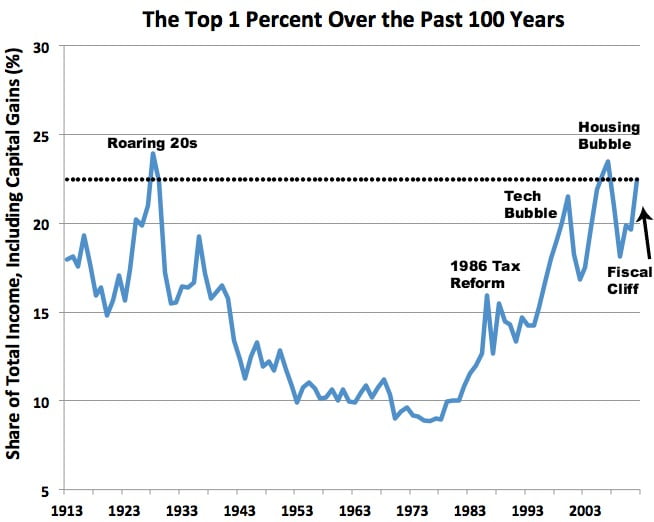ALL PEOPLE CAPABLE OF INDEPENDENT THOUGHT COME TO THE SAME CONCLUSION ….
The annual produce of the land and labour of the society, the real wealth and revenue of the great body of the people, might be the same after such a tax as before. Ground-rents and the ordinary rent of land are, therefore, perhaps, the species of revenue which can best bear to have a peculiar tax imposed upon them.
Adam Smith – Wealth of Nations (1776), Book V, Chap. 2, Art.1
Landlords grow rich in their sleep without working, risking or economizing. The increase in the value of land, arising as it does from the efforts of an entire community, should belong to the community and not to the individual who might hold title.
John Stuart Mill – Political Economy (1848), Book V, Chap. 2, Sec. 5
The tax upon land values is, therefore, the most just and equal of all taxes. It is the taking by the community, for the use of the community, of that value which is the creation of the community.
Henry George – Progress and Poverty (1879)
Roads are made, streets are made, railway services are improved, …water is brought from reservoirs a hundred miles off in the mountains – and all the while the landlord sits still… To not one of these improvements does the land monopolist as a land monopolist contribute, and yet by every one of them the value of his land is sensibly enhanced.
Winston Churchill – Speaking in 1909 for the People’s budget
Search out every problem, look into these questions thoroughly, and the more thoroughly you look into them you will find that the land is at the root of most of them. Housing, wages, food, health ….
David Lloyd George – Liberal Chancellor of the Exchequer, speaking at Aberdeen, 29th November 1912
If a tax were imposed equal to the annual use value of real property ex its improvement, so that it would now have no net earnings and hence no capital value of its own — progress would be orderly and its fruits would be equitably shared.
John Kenneth Galbraith 1908 – 2006 – The Affluent Society (1958)
So the question is, which are the least bad taxes? In my opinion the least bad tax is the property tax on the unimproved value of land, the Henry George argument of many, many years ago.
Milton Friedman – Professor of Economics, University of Chicago, speaking in 1978
Land value taxation is a “no-brainer”… It is both fair and efficient. It should be adopted.
Martin Wolf – Chief economics commentator at the Financial Times
The taxation of future growth in land values “to eliminate the fever of land speculation” that has “ended up destabilising the entire global economy”… is what Labour should have done and should commit to in future.
Polly Toynbee – Columnist, writing in The Guardian, 13th July 2010
The wealth produced over the centuries by the efforts of the community is reflected in land values and is therefore a proper target for taxation.
Vince Cable – In foreword to ‘The Case For A New People’s Budget’
The underlying intellectual argument for seeking to tax economic rents retains its force.
Mervyn King, in the standard textbook on the British tax system: Kay & King, 1990 p.179
COHERING REFORM
 There’s certainly much crap on the web. There’s a lot of good stuff, too. Naturally, I’m keen on the myriad websites proclaiming the system is broken. These sites consider the major political parties no longer represent us–having sold out to pro-war crony capitalism–and they advocate societal change. But the proposed changes seem impossibly many.
There’s certainly much crap on the web. There’s a lot of good stuff, too. Naturally, I’m keen on the myriad websites proclaiming the system is broken. These sites consider the major political parties no longer represent us–having sold out to pro-war crony capitalism–and they advocate societal change. But the proposed changes seem impossibly many.
So, how to cohere this multiplicity?
A hint to the answer is to be found in how western democracy is currently failing us:
– Mainstream newspapers continue to support one of the two main political parties, and then they wonder why their patronage is falling.
– Television has largely become escapist dross (I include here the business channels) in order that we don’t question too closely how the political system is failing us.
– Governments meanwhile go largely unchallenged as they continue privatising rail transport, gas and electricity supplies (sometimes water), prisons, ports and airports. Freeways, too, are increasingly becoming tollways. That gets them off the government balance sheet, despite these services being natural monopolies and more properly publicly-run.
– The rentier class is both invisible to reformers and at the same time all-powerful.
Are not some things meant to be held as common property? Do not such things as roads, parklands, our land and natural resources represent our common–not private–property?
Is it not these things that actually represent community? Are they not the things that give us a community of interest?
Was not payment to the public purse (via municipal ‘rates’, or the property ‘tax’) the rent for our exclusively-granted use of these things held in common, the very glue that used to hold western society together?
No longer! Everything has become private property and society has crumbled as a result.
The thing that might fashion and underpin all sensible 21st century political reform is the need that any political change be underpinned by the public capture of economic rent and the abolition of taxation of labour and capital.
Those who see the need for greater levels of taxation are misguided. What matters most is from where your revenue is derived. Without the capture of economic rent, any attempted political reform is destined to fail.
NEWS FROM MY UK CORRESPONDENT
ON THE FIFTH ANNIVERSARY OF THE LEHMAN BUST
Two BBC radio programs that are blunt and open about 2008. Far more blunt and open than they were in 2008!
http://www.bbc.co.uk/programmes/p01g94xb
This first one makes it clear that taxpayers now and for future generations are the ones who will be footing the bill for the “bail-outs”.
http://downloads.bbc.co.uk/podcasts/worldservice/bizdaily/bizdaily_20130913-0954a.mp3
In the second one there is a fantastic interview with Alistair Darling (from the 2:20 mark) I trusted him more than I trusted anyone else at the top in the UK or the US at the time. And this interview reinforces my assessment 5 years ago. He won’t win any friends in the US for his openness here.
IF YOU’RE STILL BLIND TO RENT-SEEKING, YOU’D BETTER START WORKING ON IT SOON, FOLKS!
People, you are being ripped off mercilessly, not by the 1% as this Huffington Post article says, but by the 0.1%. Wake up to yourselves for goodness sake, and put an end to all this rent-seeking in values that YOU as a community generate!
You don’t understand what rent-seeking is? It’s the annual economic rent of YOUR land, natural resources and government-granted privileges that should accrue EQUALLY to all of YOU, but the 0.1% manage to squirrel most of it unto themselves. Then they fine you on your earnings and enterprise by means of a tax regime THEY have designed! It is theft, and they continue to make clowns of you!
The process is pretty straightforward, but you really do need to make the effort to get your head around it. By merely documenting and describing the symptoms, even the Huffington Post article falls short in this regard. It doesn’t see that prescribing the public capture of publicly-created values is THE REMEDY to such horribly-widening wealth differentials!
DON’T fall for the 0.1%’s rhetoric that there are no easy solutions!
WHEN WILL THEY REALISE TECOMA IS *NOT* THE PLACE FOR A MCDONALDS?
(ALTERNATIVELY) THE 1%’S USE OF VALUE CAPTURE
HONG KONG’S USE OF VALUE CAPTURE
1990? SOME IDEAS REMAIN GOOD IDEAS
OBAMA SELLS OUT AMERICANS AGAIN
WMD in Iraq? Chemicals in Syria?
It couldn’t have anything to do with this could it? <–
It looks like the American people have come a bad fourth with President Obama, behind:
- Wall Street, to whom he is greatly indebted for his Presidency
- Wall Street’s offsiders, the Pentagon
- The proposed Iraq, Iran, Syrian natural gas pipeline
Anything you’d like to say in your defense, Mr President?



